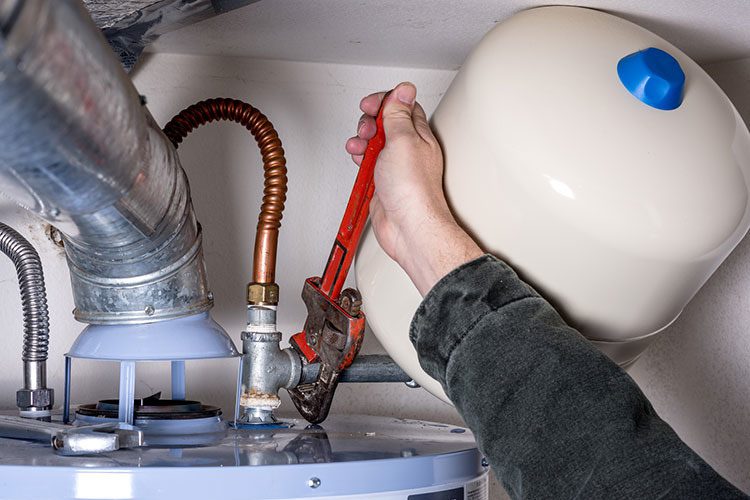If you are a homeowner, your water heater is one of the most essential appliances in your home. It powers hot showers, helps with laundry, and ensures you can clean dishes effectively. Because of this constant use, water heaters experience wear and tear over time. Eventually, many homeowners face the critical decision of whether to repair their existing unit or replace it entirely. Understanding the differences between water heater repair vs replacement can save you money, prevent unexpected breakdowns, and ensure you always have reliable hot water.
Signs That Indicate You May Need Repairs
Some issues with a water heater are relatively minor and can often be addressed by a professional repair service. For example, if your water is not heating properly, the problem could be with the heating element or thermostat. These components are usually inexpensive to fix. Another common problem is sediment buildup. Over time, minerals in the water can accumulate at the bottom of the tank, reducing efficiency and causing strange noises like rumbling or popping. Flushing the tank can often solve this problem without requiring a full replacement. Leaking valves or pipes may also be repaired if the leak is small and localized. Additionally, issues like discolored water or foul odors may be solved with maintenance such as replacing the anode rod or cleaning the system.
When Replacement is the Better Option
Although repairs can extend the life of a water heater, there are situations where replacement is a smarter financial decision. One of the most important factors is the age of the water heater. Traditional tank-style water heaters typically last between 8 and 12 years, while tankless models may last up to 20 years with proper care. If your unit is nearing the end of its expected lifespan, investing in major repairs is often not cost-effective. Persistent leaks are another red flag. If water is pooling around the base of the heater or if the tank itself has cracks or corrosion, replacement is usually necessary. A leaking tank cannot be repaired safely. Rising energy bills can also indicate your unit is no longer efficient. Older water heaters consume more energy to produce the same amount of hot water, so replacing them with newer, energy-efficient models can reduce your utility costs in the long run.
Cost Considerations in Water Heater Repair vs Replacement
Budget is often the biggest factor homeowners consider. The cost of a simple repair, such as replacing a thermostat or heating element, may range from $150 to $300. Flushing the tank or replacing an anode rod may be even less expensive. However, more complex repairs like fixing significant leaks or replacing a damaged tank can run into the hundreds of dollars. On the other hand, the cost of replacing a water heater typically falls between $1,000 and $3,000, depending on the type and size of the system. While this is a much larger upfront expense, it may be a better long-term investment if your current unit is old or requires frequent service calls. Choosing between repair and replacement is not just about the immediate cost but about the overall value and long-term savings.
Energy Efficiency and Environmental Impact
Modern water heaters are designed with energy efficiency in mind. If you are weighing water heater repair vs replacement, consider how much energy your current unit consumes. Older models often use more power and water to achieve the same results. By replacing an outdated heater with a high-efficiency tankless system or an ENERGY STAR-certified tank model, you can significantly reduce your household’s environmental footprint. Energy-efficient units not only save you money on utility bills but also help conserve resources. If environmental impact is a priority, replacement may be the more responsible choice.
Frequency of Repairs
If you find yourself calling a technician every few months, it may be time to rethink repair. Frequent breakdowns are a sign that the unit is deteriorating beyond simple fixes. Replacing the system will likely cost less over time than continually paying for small repairs. On the other hand, if your water heater has been reliable and the current issue is an isolated problem, repair is probably the more reasonable solution.
Safety Concerns
Another key factor to consider in the water heater repair vs replacement decision is safety. A failing water heater can pose risks such as leaks, scalding water, or even gas leaks if it runs on natural gas. Rust inside the tank can contaminate your water supply. Ignoring warning signs can lead to property damage or health hazards. If safety is compromised, replacement should be the immediate choice.
Choosing the Right Replacement
If you decide to replace your water heater, selecting the right unit is critical. Homeowners can choose between traditional tank-style water heaters and modern tankless models. Tank water heaters are usually less expensive upfront and come in a variety of sizes to suit different household needs. Tankless water heaters, while more costly to purchase and install, provide on-demand hot water and can last longer with fewer efficiency issues. Consider factors such as your household size, hot water usage, energy source, and budget when making your selection.
Professional Assessment
While it is helpful to understand the differences between repair and replacement, consulting with a professional plumber or HVAC technician is the best way to make an informed decision. A professional can evaluate the condition of your unit, estimate the cost of repairs, and compare it to replacement options. They can also ensure that any installation is performed safely and in compliance with local building codes.
Preventive Maintenance to Extend Lifespan
Regardless of whether you choose repair or replacement, proper maintenance can help maximize your investment. Flushing the tank annually, inspecting the anode rod, checking for leaks, and adjusting the thermostat to a safe temperature are all good practices. Tankless water heaters should also be descaled regularly if you live in an area with hard water. Preventive care reduces the risk of sudden breakdowns and helps ensure you always have reliable hot water.
Final Thoughts
Deciding between water heater repair vs replacement is not always simple. The right choice depends on factors such as the age of your unit, the cost of repairs compared to replacement, energy efficiency, frequency of breakdowns, and safety considerations. In general, if your water heater is relatively new and the problem is minor, repair makes sense. If the unit is old, inefficient, or unsafe, replacement is the smarter long-term option. By weighing these factors carefully and consulting a professional, you can make a decision that balances cost, convenience, and peace of mind.



































